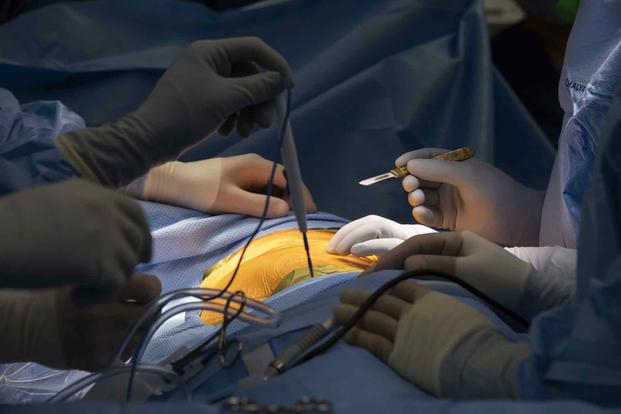Tricare, the federal health-insurance program for military service members and their families, and the Defense Health Agency that governs it, put beneficiaries at risk of paying much higher costs due to a lack of internal controls, according to an audit conducted by the Department of Justice.
The audit by the Inspector General reviewed financial records across both Tricare’s East and West regions (which includes all 50 states) from November 2023 to February 2025, found that policy did not require federal officials or the company to ensure that rates for services or equipment that don’t already have a defined reimbursement rate were “reasonable or consistent with other states,” and contractors did not have guidance on how to create new rates.
This caused a contractor in Illinois to pay $11,500 for custom sleep apnea mouth guards, a price 283% higher than the cost in neighboring Iowa, according to the audit report. The DHA also allowed rental costs for medical items to far exceed the cost of purchasing, resulting in a contractor paying Tricare $5,000 per month to rent one of two compression devices while the same product was available to rent for $675 per month and another supplier was selling one for $409.50.
Virginia is among the states with higher rental rates than purchasing costs. For a particular compression device, the rental cost per month in Virginia was $4,680 compared to $3,450 to buy it, a 35.7% difference. Connecticut had the highest difference at 100.2%, according to the audit.
In fiscal year 2023, Tricare contractors paid a total of $183 million for items or services that didn’t have a defined reimbursement rate. It’s unclear how much of that total is considered “unreasonable” and how much additional financial burden was passed on to beneficiaries.
“Because the DHA did not determine that the state prevailing rates were reasonable, the DoD is at risk of wasteful spending and increasing DoD beneficiaries’ risk of unreasonable cost-shares for health care services and items that are paid with state prevailing rates,” the audit concludes.
State prevailing rates are established by taking all the billed charges for a service or item in the previous year and separating them by state. The state prevailing rate is then set at the 80th percentile of the charges for that service or item in each state.
The amount the DHA has reimbursed providers for all health care services and items has decreased by 16% since fiscal year 2021 as a result of measures taken in response to prior DOD reviews, according to the audit.
The federal agency issued a policy in July that allows contractors to set payment thresholds to “prevent reimbursement substantially in excess of customary or reasonable charges.”
The Inspector General recommends that the DHA reassess and revise the state prevailing rates in Tricare’s policy to ensure rates are “reasonable,” develop and issue guidance to require an independent party to review the state prevailing rates annually, and implement an oversight mechanism.
DHA has hired a company to monitor the accuracy of payments made by Tricare contractors. In 2022 and 2023, this company found that Tricare had a quarterly error rate of 0.31% or less and 0.4% or less, respectively, across both the East and West regions. These error rates are lower than Tricare’s own maximum allowable error rate of 1.75%.
A Tricare spokesperson did not respond to an emailed question about how soon beneficiaries might see a change in costs.
©2025 The Virginian-Pilot. Visit pilotonline.com. Distributed by Tribune Content Agency, LLC.












